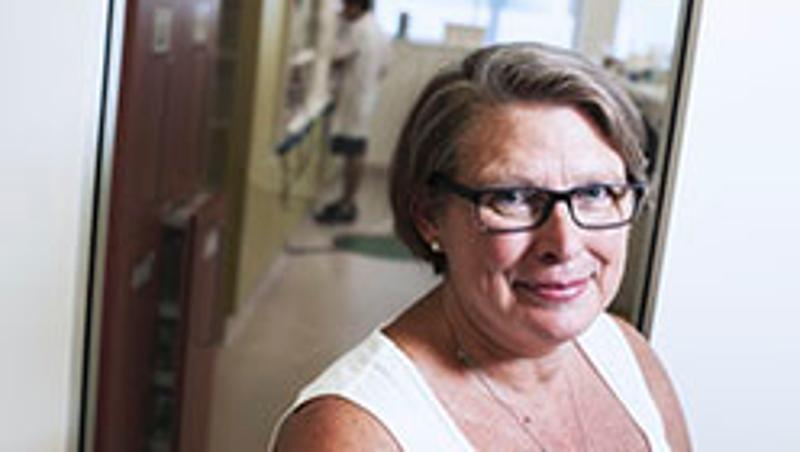
Ebola outbreaks are always possible but next time many African countries will be better prepared to stymie the spread and mortality rate, thanks to people like QUT microbiologist Dr Belinda Herring who volunteered with the World Health Organisation (WHO) to travel to Ethiopia to evaluate its preparedness for ebola.
Dr Herring, a senior lecturer in QUT's School of Biomedical Sciences, used her years of experience managing and working in physical containment laboratories to assess the Ethiopian laboratory.
"Level 3 and particularly level 4 labs deal with the most dangerous pathogens such as Hendra virus and ebola. These organisms are classed as the highest-risk because they are life-threatening, a serious threat to lab workers and the community, readily transmitted and have no effective treatment or vaccine prevention," Dr Herring said.
"WHO identified African countries that were at risk for an ebola outbreak. Although Ethiopia was not deemed at risk, the country did request assistance from WHO to evaluate their preparedness if ebola arrived in Ethiopia.
"It is important that samples from suspected cases can be brought safely to a lab so that other diseases, which also present with fever, such as malaria can be ruled out.
"I volunteered with the team to go to Ethiopia. Their laboratory preparedness was good with some areas needing some work. We must remember that Ethiopia has a health budget of around only $44 per capita per year so everything may not be doable.
"This means that it is never a simple matter to mandate infection control measures such as hand-washing with alcohol hand sanitiser, if the country does not have access to alcohol-based handrubs.
"Such countries sometimes don't have the budget to run basic preventative medical programs like vaccination campaigns without help from external sources."
Dr Herring said the December visit to Ethiopia was followed up with an evaluation meeting in Geneva last month to report findings from all the ebola preparedness missions and map the next steps.
"It was a meeting of the WHO country representatives, international donor agencies, UN agencies such as World Food Program and UNICEF, other aid organisations and technical experts.
"The next steps are follow-up visits to the countries to see how they are working towards implementing the short, medium and long term recommendations."
Dr Herring said that while ebola case numbers were decreasing, the possibility of another outbreak was ever present. All it takes is for one infected person to go to school, or to the market or a soccer game - into any crowd, and it could take off again," she said.
"Ebola is transmitted to humans from wild animals, most likely bats, which are eaten as 'bush meat' in some countries. This can be an important source of protein in some places and a common part of the diet so it is not easy to ban the eating of 'bush meat'.
"Ebola isn't an airborne infection but it is found in human fluids and secretions; even saliva can contain the virus so kissing an infected person can potentially lead to infection."
Dr Herring said the risk of human-to-human transmission of ebola in densely populated urban areas was high.
"There are villages in the Democratic Republic of Congo which have had ebola outbreaks, but these were easily contained because they were in isolated and remote areas where access and transport out isn't easy."
Media contact: Niki Widdowson, QUT media, 07 3138 2999 or n.widdowson@qut.edu.au


